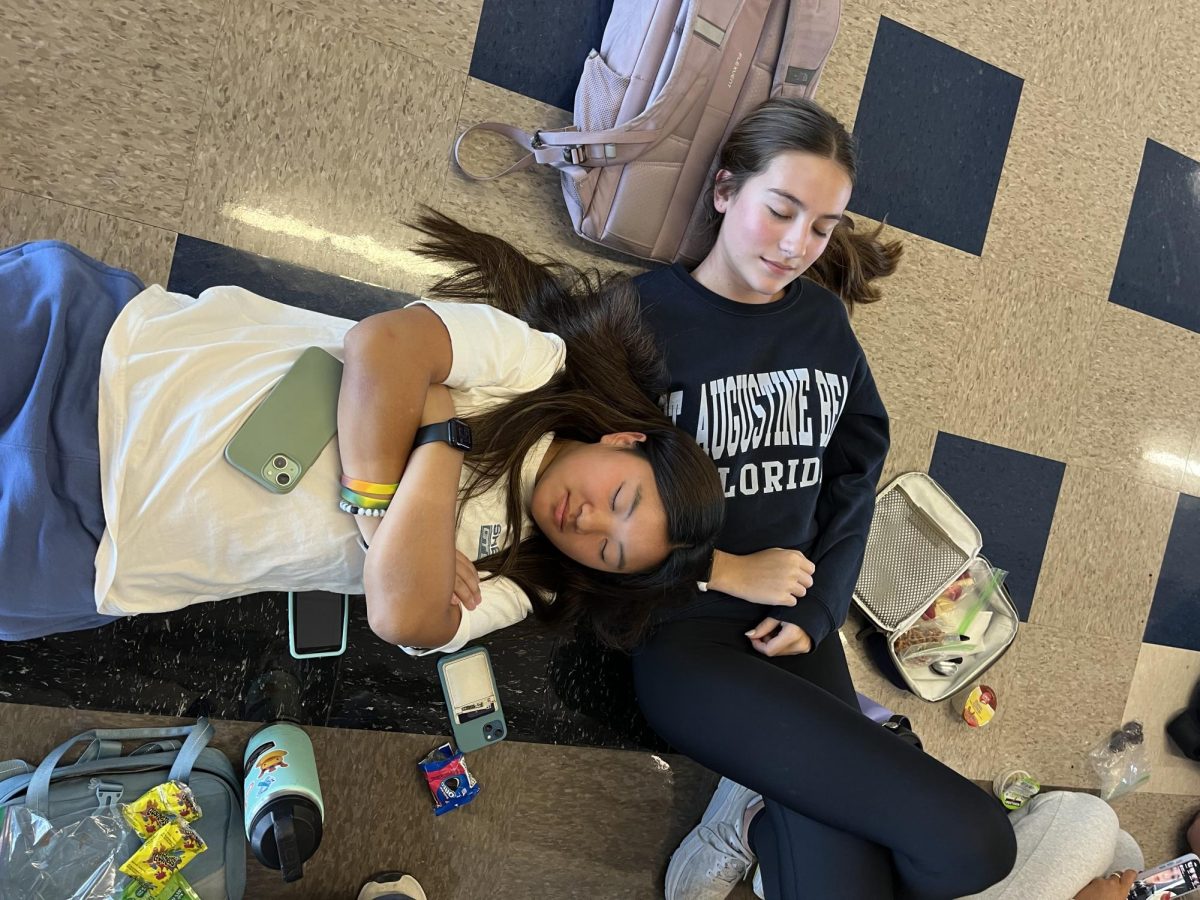You feel your eyelids becoming heavy as you struggle to pay attention to the notes presented on the board. Your vision blurs as your eyelids slowly begin to rest at half mast and your head begins to rest on top of your arms on the table. Before you know it, you are jolted awake five minutes later to your name being called to answer a question you hadn’t even heard by your teacher. Unfortunately, this is regarded as a universal experience among high school students. The majority of high school students stay up way too late, sometimes doing homework but more likely scrolling on their phones, and then are abruptly awakened by their alarm only a few short hours after they drifted away.
Between mountains of homework, a plethora of sports and other extracurriculars, it is easy for students’ sleep schedules to fall to the bottom of the priority list. Yet, the consequences of poor sleep are significant. According to a study by the CDC, more than 70% of high school students reported not getting the recommended eight to ten hours of sleep per night. Chronic sleep deprivation can affect academic performance, mental health, and physical well-being. Students who don’t get enough rest often struggle with concentration and memory retention, leading to lower test scores and increased stress levels. “I wake up tired every single morning,” said junior Michelle Baek who gets an average of six hours of sleep per night. “Sometimes I have to keep myself from falling asleep while driving to school.”
Many students believe they work better at night, which often leads them to put off homework until the late hours of the night. This phenomenon is common among high schoolers who feel as though late at night is the only uninterrupted time to focus once the day’s distractions have quieted down. While students might feel more productive late at night, this habit often backfires as exhaustion sets in, leading to less efficient work and thus even more sleep deprivation. Over time, this cycle of late night cramming can negatively impact students’ academic performance and overall health. “I start watching TV at around nine and a few hours later, when I’m ready to go to bed, I remember all of the homework I still need to do,” said junior Caitlin Fleming.
Social media is another common trap, with many students scrolling into the early hours of the morning. In response to growing concerns over teen sleep deprivation, some school districts have begun to implement later start times. However, these later start times often come with significant drawbacks, with times that coincide with rush hour traffic. Ultimately, the responsibility for getting enough sleep falls on the students themselves. “I have started to put my phone on ‘do not disturb’ before I go to bed and charge it somewhere I cannot reach from bed,” said junior Elizabeth Greer. “This has really helped me go to bed earlier and I feel much more rested.”
More sleep can mean better focus, improved memory, higher test scores, and greater resilience in handling the never ending demands of high school life. While it may feel like there are not enough hours in the day, making sleep a priority is one of the most effective ways students can improve both their mental and physical health.














